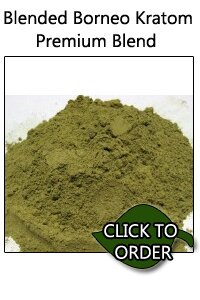How Compounding Helps Children Take Their Medicine

Getting children to take their medicine is often easier said than done. Parents know the struggle of convincing a child to swallow a bitter pill or drink a syrup that tastes unpleasant. For some families, these daily battles make treatment stressful and, at times, inconsistent. This is where compounding pharmacies play a valuable role by creating medicines designed with children in mind.
One of the biggest challenges is taste. Children are very sensitive to flavors, and many standard medications are produced in forms that are not kid-friendly. “Commercial medications often come in limited strengths that may not match what a child actually needs. In some cases, shortages of certain drugs make access even more difficult, as highlighted in this article, https://www.usatoday.com/story/special/contributor-content/2025/03/28/the-silent-emergency-jay-bhaumik-on-the-drug-shortage-crisis/82709124007/. A compounding pharmacy can prepare the exact dose in a form that is easier to take, whether that is a liquid, a chewable tablet, or even a topical gel.”
Another hurdle is dosage. Children are not just “small adults.” Their bodies process drugs differently, which means dosing needs to be carefully adjusted. Commercial medications often come in limited strengths that may not match what a child actually needs. A compounding pharmacy can prepare the exact dose in a form that is easier to take, whether that is a liquid, a chewable tablet, or even a topical gel. This ensures children get the right amount of medicine for their age and weight without the risk of overmedication or underdosing.
Swallowing pills is another barrier. Many children cannot swallow solid tablets or capsules, which limits their treatment options. Compounded medications can be transformed into liquid suspensions, dissolvable films, or even lollipops in certain cases. These creative solutions are not just about convenience but also about reducing stress for families and improving adherence to treatment plans.
Allergies and sensitivities also need to be considered. Some children may be allergic to dyes, lactose, or preservatives commonly found in mass-produced medications. A compounding pharmacist can prepare a formula that leaves out unnecessary ingredients, giving parents peace of mind that their child is not exposed to substances that might trigger a reaction.
The benefits extend beyond children, too. Parents and caregivers often feel more supported when they see their child taking medicine without a fight. This reduces household stress and creates a more positive environment for healing. It also builds trust between families and healthcare providers, as solutions are tailored to real-world challenges that families face.
Looking ahead, compounding will likely become an even more important part of pediatric care. As healthcare continues to move toward personalization, children stand to benefit greatly from medicines that are designed not only for their health conditions but also for their everyday realities. Whether that means a strawberry-flavored antibiotic or a custom-strength medication, compounding makes it possible to turn something stressful into something manageable.
At its core, compounding is about meeting children where they are. By removing barriers like bad taste, difficult dosing, or allergens, pharmacists are helping kids get the care they need in a way that works for them and their families. This personalized approach ensures that medicine does what it is meant to do: support healing without unnecessary obstacles.










